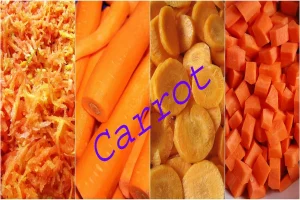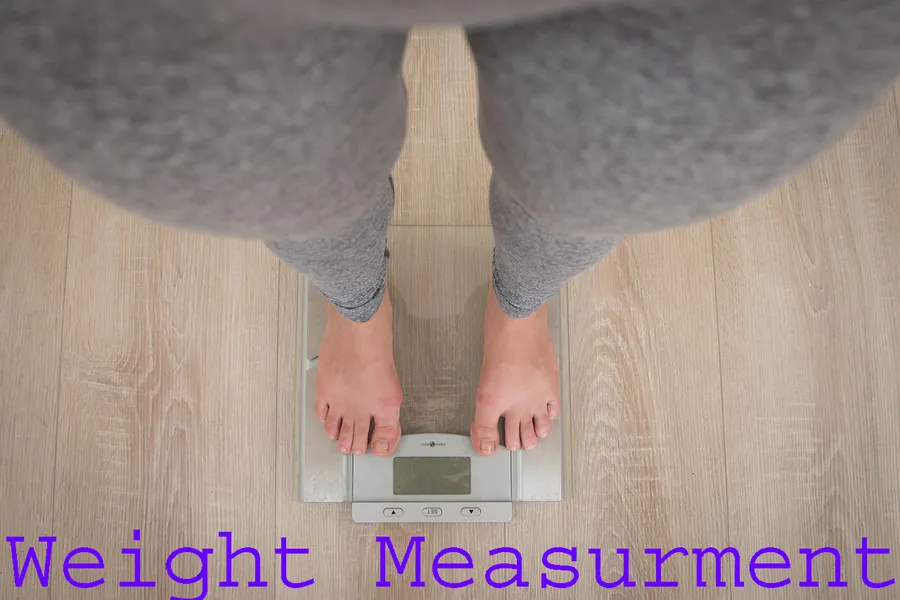Starting a weight loss journey can feel overwhelming. Many women struggle to find the right diet plan that suits their needs.
A beginner diet plan for weight loss is a great way to take the first step toward a healthier lifestyle. This guide is designed specifically for women who are new to dieting. It will assist you in developing healthy habits and comprehending the fundamentals of nutrition.
Knowing what to eat can be confusing, especially with so much information available. This plan simplifies everything. It focuses on easy-to-follow meals and snacks that promote weight loss. You’ll learn how to make smart food choices while enjoying your favorite flavors. Remember, the goal is not just to lose weight, but to feel good and energized every day.
Weight Loss For Women
Women encounter particular difficulties when trying to lose weight. Lifestyle variables, metabolism, and hormones all play a part. Understanding these differences can help women create effective diet plans. A beginner diet plan tailored for women can make this journey easier.

Why Gender-specific Plans Work
Gender-specific diet plans are important. They address the unique needs of women. Here are some reasons why these plans work:
- Hormonal Differences: Women have different hormones. These hormones affect weight loss and gain.
- Caloric Needs: Women usually require fewer calories than men. This impacts meal planning.
- Nutritional Needs: Women need specific nutrients. Iron and calcium are often priorities.
- Body Composition: Women generally have a higher body fat percentage. This influences diet choices.
The Journey To Slim And Strong
The path to weight loss can be empowering.There is more to it than weight loss. It is about feeling strong and healthy. The following are important actions for women to take:
- Set realistic goals. Aim for steady, gradual weight loss.
- Focus on balanced meals. Include fruits, vegetables, and whole grains.
- Stay active. Regular exercise supports weight loss.
- Stay hydrated. Drink plenty of water each day.
- Keep a food diary. Tracking meals helps identify patterns.
Women can achieve their goals with commitment and the right plan. A focus on nutrition and exercise creates lasting change.
Essentials Of A Balanced Diet
A balanced diet is key for weight loss. It provides the body with necessary nutrients. Following a balanced diet helps maintain energy levels. It also supports overall health.
Macronutrient Breakdown
Macronutrients are the main components of food. They include:
- Carbohydrates: Provide energy.
- Proteins: Build and repair tissues.
- Fats: Support cell function and energy storage.
Here’s a simple breakdown of macronutrient ratios for weight loss:
| Macronutrient | Percentage of Daily Intake |
| Carbohydrates | 45-65% |
| Proteins | 10-35% |
| Fats | 20-35% |
Choose whole grains for carbohydrates. Include lean meats and legumes for protein. Healthy fats can come from nuts and avocados.
Importance Of Micronutrients
Micronutrients are vitamins and minerals. They play a vital role in health. Important micronutrients include:
- Vitamin D: Supports bone health.
- Iron: Aids in oxygen transport.
- Calcium: Important for strong bones.
Minerals and vitamins abound in these foods.

Consider these tips:
- Eat a variety of foods.
- Limit processed foods.
- Stay hydrated with water.
For optimal weight loss, a diet rich in macronutrients and micronutrients must be balanced.
Calorie Counting Basics
Calorie counting is key for weight loss. It helps you understand how much energy you consume. Knowing your calorie intake supports your goals. You can create a balanced diet that fits your needs.
Start by learning about calories. Each food has a specific calorie count.Certain foods have a lot of calories, whereas others don’t. Understanding this helps you make smarter choices.
Understanding Your Caloric Needs
Your caloric needs depend on several factors. Age, weight, height, and activity level matter. Women generally need fewer calories than men. A good starting point is around 1,500 to 2,000 calories per day.
To lose weight, aim for a deficit. In other words, you should consume less calories than you expend. Safe weight loss can be achieved with a daily calorie deficit of 500–1,000. Tracking your intake is essential in this process.
Tools For Tracking Intake
Using tools makes calorie counting easier. Many apps help track your food intake. Popular apps like MyFitnessPal or Lose It! are user-friendly.
These apps allow you to scan barcodes for quick logging. They also provide nutritional information for thousands of foods.
You may track your progress and establish targets.
Journaling is another effective method. Write down everything you eat. Include portion sizes and calorie counts. This helps you stay accountable.
Measuring portions can be helpful too. Use measuring cups or a food scale. This ensures you know exactly how much you are eating.
Meal Planning Strategies
Meal planning is key for weight loss success. It helps you stay on track. Planning meals saves time and reduces stress. You can make healthier choices. Let’s explore some effective meal planning strategies.
Prepping For Success
Start by setting aside time each week.Decide which day to organize and prepare your meals. Make a list of foods you enjoy.Add a range of cereals, vegetables, and proteins. This variety keeps meals interesting.
Next, shop for your meals. Follow your list to prevent impulsive purchases. Choose fresh, whole foods. Avoid packaged foods with added sugar and preservatives. Fresh ingredients are healthier.
Cook in batches to save time. Prepare large portions of your favorite meals. Store them in portion-sized containers. This facilitates grabbing a bite to eat. You’ll always have healthy options ready.
Sample Meal Plan Ideas
Here are simple meal plan ideas for beginners. For breakfast, try oatmeal with fruit. For lunch, enjoy a salad with chicken. Add plenty of colorful veggies.
For dinner, grill fish with brown rice and broccoli. Snacks can be fruits, nuts, or yogurt. Keep snacks healthy and portion-controlled.
Feel free to mix and match meals. This keeps your diet fun and exciting. Adjust portions based on your hunger. Listen to your body and eat mindfully.
Incorporating Fitness Into Your Routine
Adding fitness to your daily life helps with weight loss. It boosts your energy and improves mood. You can achieve your goals with a balanced diet and regular exercise.
Start small. Find activities you enjoy. This facilitates sticking to your plan. Simple changes can lead to great results. Walk more, dance, or try yoga. Every movement counts.
Exercise For Weight Loss
Exercise plays a key role in weight loss. It burns calories and builds muscle. Make an effort to engage in moderate exercise for at least 150 minutes per week. This can include brisk walking or cycling.
Strength training is important too. It helps tone your body. Include exercises like push-ups, squats, and lunges. These workouts can be done at home. No gym is needed.
Creating A Sustainable Workout Plan
Choose a workout plan that fits your lifestyle. Set realistic goals.
As you feel more comfortable, progressively extend the duration.
Mix different types of workouts. This keeps things interesting. Combine cardio, strength training, and flexibility exercises. You will work different muscle groups.
Schedule your workouts. Treat them like important appointments. Consistency is key. Find a workout buddy for motivation. Having support makes it easier to stay on track.
Hydration And Weight Loss
Staying hydrated is important for weight loss. Water helps your body function well. It can also reduce hunger. Many people confuse thirst with hunger. This can lead to overeating. Drinking enough water supports your weight loss journey.
The Role Of Water In Dieting
Water plays a key role in dieting. It helps your body burn fat. Proper hydration boosts your metabolism. It also aids in digestion. Drinking water can help flush out toxins. This keeps your body healthy and functioning properly.
Water consumption before meals can lower caloric intake, according to studies. It makes you feel fuller. This simple habit can aid weight loss. Adjust based on your activity level.
Tips To Increase Water Intake
Staying hydrated can be easy. Here are some simple tips. Keep a water bottle with you. Drink water at meals and snacks.Make water-drinking reminders on your phone.
Use herbs or fruits to flavor your water. Try lemon, cucumber, or mint. Herbal teas are also great options. Consuming foods high in water also helps. Fruits like watermelon and oranges are refreshing.
Make drinking water a habit. You will notice benefits quickly.
Navigating Diet Challenges
Weight loss can be hard. Many women face challenges on their diet journey. This section will guide you through common problems.
Dealing With Plateaus
Plateaus are frustrating. They happen when weight loss stops. The following advice can help you overcome this obstacle:
- Change Your Routine: Switch up your exercise or diet.
- Track Your Intake: Keep a food diary to see what you eat.
- Stay Hydrated: Drink plenty of water each day.
- Get Enough Sleep: Sleep affects weight loss. Aim for 7-9 hours.
- Be Patient: Weight loss takes time. Stay focused on your goals.
Eating Out And Social Events
Social events can challenge your diet. It’s easy to stray from your plan.The following advice will help you keep on course:
- Plan Ahead: Check menus before going out. Look for healthy options.
- Make Sensible Decisions: Choose baked, steamed, or grilled foods.
- Watch Portions: Share meals or ask for smaller sizes.
- Stay Mindful: Eat slowly and enjoy each bite.
- Skip Sugary Drinks: Choose water or unsweetened beverages.
Staying committed to your goals matters. Prepare for challenges. You can enjoy social events while managing your diet.
Motivation And Mindset
Building a healthy diet plan requires a strong mindset. Maintaining motivation is essential for long-lasting improvement. Your thoughts can shape your journey. Focus on positive thinking to support your weight loss goals.
Staying Motivated
Staying motivated can be challenging. The following advice will help you continue:
- Establish definite objectives: Clearly state your goals.
- Monitor your progress: Record your meals and activities in a journal.
- Celebrate small wins: Reward yourself for reaching mini-goals.
- Find a support system: Connect with friends or online groups.
Use these strategies to stay focused. Remember, every small step counts.
Mental Health And Dieting
Mental health plays an important role in dieting. Stress and negative thoughts can affect your eating habits. Here are some strategies for keeping a positive outlook:
- Practice self-compassion: Be kind to yourself during setbacks.
- Stay positive: Focus on what you can control.
- Mindfulness: Practice being present during meals.
- Seek assistance: If necessary, think about speaking with a professional.
Take care of your mental well-being. It supports your weight loss journey.
Monitoring Progress And Adjustments
Monitoring progress is essential in a beginner diet plan for weight loss. It helps track changes and make necessary adjustments. Regularly checking your progress keeps you motivated. Understanding when to revise your diet helps in achieving your goals.
Tracking Changes Beyond The Scale
Weight is just one measure of progress. Other factors show how your body is changing. Consider these methods:
- Body measurements: Measure your waist, hips, and thighs.
- Fit of clothing: Observe how your garments change over time.
- Energy levels: Take note of your everyday mood.
- Fitness performance: Track your exercise progress and stamina.
Using a journal or an app can help track these changes. Write down your measurements and feelings weekly. This gives you a clearer picture of your progress.
When you notice these signs, it’s time to adjust your plan. Consult a nutritionist for personalized advice. Make small changes to your meals. Add more vegetables or healthy snacks. Adjusting keeps you on track and moving forward.
Long-term Maintenance
Maintaining weight loss is crucial for overall health. It requires commitment and smart choices. Many women find this phase challenging. However, with the right strategies, long-term success is achievable. Focus on sustainable habits. These habits will help keep the weight off.
Keeping The Weight Off
To keep the weight off, stay consistent with healthy habits. Here are some effective tips:.
- Hydration: Drink plenty of water to stay hydrated.
- Mindful Eating: Pay attention to hunger cues. Avoid distractions while eating.
- Track Your Progress: Record your food and exercise intake in a journal.
Lifestyle Changes For Sustained Health
Making lifestyle changes is essential for lasting results. Consider the following:
- Set Realistic Goals: Aim for gradual weight loss. A healthy weekly weight range is one to two pounds.
- Find a Support System: Surround yourself with supportive friends or groups.
- Make Sleep a Priority: Try to get seven to nine hours of good sleep every night.
- Practice stress-reduction techniques like yoga or meditation.
Implementing these changes can promote better health. Focus on what works for you.
Final Thoughts
A beginner diet plan for weight loss can be simple and effective. Prioritize whole foods such as whole grains, lean meats, fruits, and veggies. Drink lots of water to stay hydrated. Control portion sizes to prevent overindulging. Keep in mind that consistency is essential.

